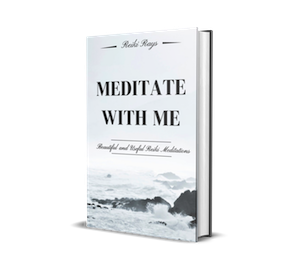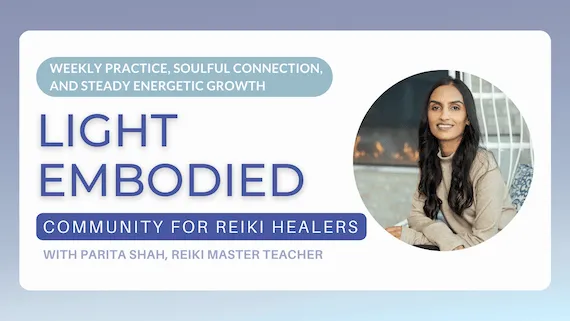I cried for the entire night. I had people around me, yet I had no support and I felt lonely. I was cursing myself for I was being accused of causing pain to my dear ones. It was not intentional, that I’m sure of. However, the burden of the pain that I had caused lingered over me. At least I was made to feel guilty.
Why was I made a scapegoat by the creator? Why was I planted in this situation in the first place which made my dear ones unhappy? Why me? All the WHY questions plagued my mind.
I was haunted by the thoughts of self-mutilation and even suicide. I didn’t know how, but I was sure of committing it before dawn. Yet something stopped me from taking this extreme step – maybe it was the belief that I would bring disgrace to my family, or maybe I was too pigeon-hearted to take such drastic action, or maybe I was just too afraid of the consequences if I survived the attempt.
I don’t know what kept me from making that move. Maybe some invisible angel was looking at me from a distance and protecting me without my knowledge! Chuckles… not from me though… maybe it’s those guardians trespassing again. On second thoughts, I felt, it would have made things easy, at least temporarily – as if I would have been alive to feel the ease. Chuckles, again… It would at least have given my dear one’s a chance to repent on their irrational allegations. Guffaw, this time.
You see, I used to overthink a lot! And I knew I did. It amused me how mindful I was even while I overthought. Grinning… it’s me, this time!
Well, it’s easy to make fun of myself now that I am out of the crisis. But believe me, I was a part of innumerable cycles of emotional turmoil and hurricanes of grief. I have been in loops of heartbreaks, melancholy, depression, and martyrdom, before I could regain myself and fix my fragmented parts into a whole, at least partially.
In search of answers, I roamed from door to door – my doors opened to a new book each time. One book particularly caught my attention. It was Karen Casey’s “Let Go Now: Embrace Detachment as a Path to Freedom“. I tried reading it, but couldn’t. Nothing struck a chord inside me. No advice works when you are going through hell. Maybe self-help books are for the sober and not for people already in the rut. Yet I clung to it, slept with it under the pillow with frantic hopes that something would work and get me out of my depressive cycles.
My quest, I cannot say came to an end, but was quenched to a large extent by a unique and intriguing book, Paramahansa Yogananda’s “Autobiography of the Yogi“. Though it’s an autobiography, every page of the book served as a bioscope for me to glance into my ‘soul’ – a term I had first read in the Bhagavad Gita, which made me realize there’s more for me to identify with myself, than my body or thoughts.
However, it would be wrong to say that my learnings have come only from books. Instead, it is the application of knowledge in practicality that has made me experientially resilient over the years.
Why ‘Practice’ Mindful Detachment?
Detachment or vairagya is taking the mind away from the problem. However, detachment can be a double-edged sword if not handled carefully. When we distract our thoughts from something, it’s easy for it to wander around and find a corner of insignificance or a space of incoherence. Lingering in this space for long can prove to be an undesirable escape and maybe the reason for mental incognizance.
A better way to employ detachment is to not only take the mind away from the problem but also focus it on something constructive, or for that matter, something neutral, to begin with – like the breath. This process of refocusing our mind, being totally aware and fully present (mindfulness), from the problem to another object of focus is called abhyasa or practice.
Neuropsychologist, Donald Hebb rightly coined the phrase, “neurons that wire together, fire together!” to emphasize how repetition reinforces the formation of new neural connections in the brain. It is only with practice that we can leverage the brain’s malleability (neuroplasticity) and channel the circuitry of the neural pathways to new thoughts and emotions which may be constructive and more importantly, not destructive.
The succeeding steps are only a speck of what has helped me in reclaiming my worth and it may be of possible support to you in your unique journey. And while I say this, it is equally true that none of these have come easily. Words are not enough to iterate how much work has gone and is still in progress to come to a decent level of practice.
1. Own It
“You have come to Earth to entertain and to be entertained.”
~ Paramahansa Yogananda
Ain’t these words liberating? The world is a stage and we are a part of the drama called life. It is a known fact that our perception becomes our reality. If we can see ourselves, playing a role that “we chose”, rather than being a victim who has to go through a life that somebody threw at us, we create a completely new dimension, a whole new life.
While doing so, we are not disowning the fact that we are a part of this entanglement. We are acknowledging that we are a part of the whole.
It is easy to escape into the mental (e.g. overthinking), emotional (e.g. brooding) and at times astral (e.g. sleeping) levels to avoid issues at the physical level. Most people succumb to substance abuse or choose an alternative behavior to escape pain and grief. But that is just that, a temporary get-away.
A more permanent and liberating way to sail through emotional anguish is to face the crisis head-on. I know what you are thinking… it’s easier said than done. But I am not saying it would happen overnight. We are already in this experiment called life and the best way to support the exploration is by either equipping ourselves with necessary life skills or by soliciting support from an expert who can train and empower us in becoming independent.
Owning our experience is a crucial and primary step in liberating ourselves from any crisis. Ask, “How well am I decked up to entertain myself without relying on external sources?” If it’s inadequate, start building and assembling these indispensable skills and resources.
2. Take a Bird’s-eye View
Once we know that we are a part of this ruckus, the next step is to rise above the situation. And when I say this, I mean it literally. I consider the situation like a battle and see myself floating above the battlefield looking at the spectacle from an aerial view, looking at my character as a third person. This vision helps me comprehend how despite being a part of the pandemonium, I am still separate from it.
This vision has given me the skill to objectively see through a situation without getting involved in it. It has blessed me with the rationality to soundly weigh two opposing viewpoints without interfering in any. Imagine the relief in being able to do what suits me without the fear of judgment and without getting affected or bruised by others’ actions or words. No hurt, no suffering. Emancipation, already!
3. Stop Fighting
Doesn’t the chaos theory say it all? We are all threads interwoven into a beautiful fabric of the universe. Notwithstanding the evident differences in our structures and psyches, there is an underlying pattern that we all are connected with while going through experiences that cross each other’s path. If a flap of a butterfly’s wings can amount into a volcano in some area on the flip side of the Earth, consider what might be the consequence of the constant struggle we are in with ourselves and the world!
We are going to bleed until we stop scathing our wounds repeatedly. It’s common sense, isn’t it? However, many interpret not confronting as giving up or accepting defeat. But in reality, it’s far from that.
When I choose harmony, I reverberate the same vibration outside. It’s a win-win ball game. Try conceiving, what this symphony of tranquillity traveling the world and coming right back to us hundred-fold stronger, looks like? How is it then that we lose in the bargain? Not possible right? Peace!
4. Create a Safe Space
Even though we may be at the risk of being called hard-shelled and insensitive, this is one of the most important progression in the way of practicing detachment mindfully.
The body jumps into a fight-flight-fright mode in response to any stressful situation, creating more harm than good if we are in continuous flux. Self-preservation is a basic right and responsibility of every human. However, before we protect ourselves, we should make sure that we are not blaming anybody or holding any external factors or people responsible for our situation. Nor are we overlooking our flaws, but are in a process of continuous learning and improving at every phase of life.
Likewise, creating a safe space is not akin to forming a shell. It is not a process of exclusion – we are not omitting anybody intentionally. Instead, it is the ability to cut ourselves from the people and events that disturb our sanctity and consciously engaging with communities and missions which fire the ignition of purpose within us. It’s a Broadway of inclusion towards a haven that supports growth, healing, and peace. Anything and anyone in alignment with this purpose is welcome.
This ensures that we remain unbothered and out of the instinctive and possibly destructive cycle of the biological and psychological interplay between our hormones and our environment.
5. Be a Mad-hatter
Can there be anything more liberating than being able to live a paradisiacal life, celebrating “unbirthday tea parties” and asking rabbity questions like “Why is a raven like a writing desk”? Yes, the entire auditorium, let alone the stage, is all yours!
Our problem begins with the sombreness we tag life with and ends with a tea leaf of humor. Humor carries a flavor of lightness that not only unshackles us from the illusionary chains of doubt and fear that bind us to people and situations but also sets free humanity free with the wings of forgiveness. Liberation, finally!
Everybody goes through the dark night of the soul; a time not in one’s control. It’s imperative to feel directionless when we start attaching ourselves unreasonably to people, material, and life. All the same, when we are in acceptance of what is, nothing affects us anymore. We can survive a crisis by coping with it. But the million-dollar question is, “Is survival enough or should we strive for liberation”?
Article by Reiki Master Supriya Nair
Free eBook download: We’ve created an eBook with our best articles on this topic, and offer it for free to all our newsletter subscribers.


Supriya Nair
Dr. Supriya Nair, IMD, PhD has been a Reiki and Kriya Yoga practitioner since 2008. A conduit between the scientific and spiritual worlds, Dr. Supriya has a profound fascination for the healing arts. Apart from holding the title of Usui Reiki Master Teacher, Dr. Supriya is a certified Health Coach and proficient in various integrative medicine modalities. She is also the author of "Train Your Brain to Unchain Your Pain."
To get in touch with Dr. Supriya, you can reach out via email at [email protected] or connect with her on Facebook at facebook.com/supriyanair111 and on Instagram at instagram.com/proconscious.cafe.






Detachment with a bird’s eye view sure it is 🙌
Many thanks for the great insight !